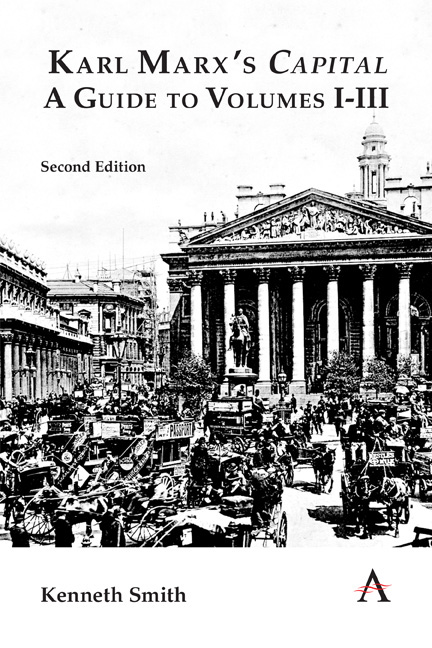Book contents
- Frontmatter
- Dedication
- Contents
- Preface to the Second Edition
- Introduction
- Part I The Development of the Capitalist Mode of Production
- Part II The Capitalist Mode of Production
- Part III The Underdevelopment of the Capitalist Mode of Production
- Part IV The Value Theory of Labour
- Conclusion to Part IV
- Conclusion
- Appendix: On Social Classes
- Notes
- Bibliography
- Index
13 - Marx on Development and Underdevelopment in Capital, Vol. I, Ch. 25, Section 5
Published online by Cambridge University Press: 17 April 2021
- Frontmatter
- Dedication
- Contents
- Preface to the Second Edition
- Introduction
- Part I The Development of the Capitalist Mode of Production
- Part II The Capitalist Mode of Production
- Part III The Underdevelopment of the Capitalist Mode of Production
- Part IV The Value Theory of Labour
- Conclusion to Part IV
- Conclusion
- Appendix: On Social Classes
- Notes
- Bibliography
- Index
Summary
In the previous chapters of Part III of this book I have suggested that the capitalist mode of production itself is underdeveloped. What I mean by this is that the capitalist mode of production we are all familiar with today has not developed fully in the way that Marx expected that it would, but that the uninterrupted circulation of industrial capital has been undermined in its development by the continuing existence of a highly developed form of mercantile capitalism (characterized by an independent circuit of money capital) and which is erroneously called ‘finance capital’ by Rudolf Hilferding. If this is the case it seems as well to conclude this discussion by looking at what Marx had to say about the development and underdevelopment of the capitalist mode of production in Capital, Vol. I (see especially Ch. 25, section 5, entitled ‘Illustrations of the General Law of Capitalist Accumulation’, 1974a, 607–66 [1976, 802–70]), as well as what he had to say on this subject elsewhere in his writings, before we go on to look at what he has to say on the question of surplus value and profit at the beginning of Capital, Vol. I, in Part IV of this present study.
Until only a few years ago, it was commonplace to argue that Marx thought that capitalism would undermine the development of (or ‘underdevelop’) the non-capitalist world (Kay 1975; Warren 1980). However, there is in fact surprisingly little in Marx's writings generally to support the argument that this was his view beyond some very general comments on the destructive effects of English colonialism on Irish agriculture in Capital, Vol. I, Chapter 25, section 5f (1974a, 652–66 [1976, 854–70]), and a letter by Engels to Marx in which Engels argued that Ireland had been ‘stunted’ in its development by English colonialism (Marx and Engels 1976, 334). In fact, the genealogy of the neo-Marxist concept of underdevelopment during the second half of the twentieth century would seem to owe more to Paul Baran's 1957 The Political Economy of Growth, Paul Baran and Paul Sweezy's highly influential 1965 Monopoly Capitalism and especially to (Baran's student) Andre Gunder Frank's 1967 Capitalism and Underdevelopment in Latin America than it does to Marx.
- Type
- Chapter
- Information
- Karl Marx's 'Capital': A Guide to Volumes I-III , pp. 104 - 110Publisher: Anthem PressPrint publication year: 2021



